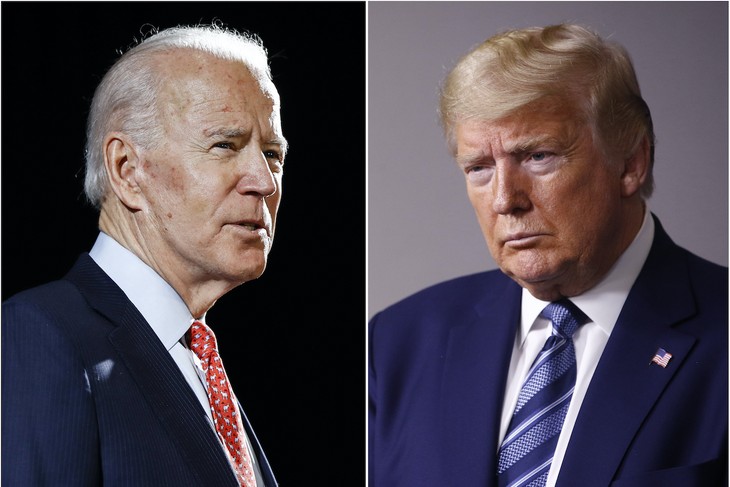The 2020 Election Will Be a Landslide For Biden. Unless Trump Wins

Today’s edition of “Fun With Polls” has one survey showing Joe Biden winning in a landslide over Donald Trump in the November presidential election because the economy is so bad. Oxford Economics developed a model that is predicting a “historic” Biden sweep.
The model, which uses unemployment, disposable income and inflation to forecast election results, predicts that Trump will lose in a landslide, capturing just 35% of the popular vote. That’s a sharp reversal from the model’s pre-crisis prediction that Trump would win about 55% of the vote. And it would be the worst performance for an incumbent in a century.“It would take nothing short of an economic miracle for pocketbooks to favor Trump,” Oxford Economics wrote in the report, adding that the economy will be a “nearly insurmountable obstacle for Trump come November.”
Meanwhile, others see a very real chance that Trump wins. Perhaps losing the popular vote, but strong enough in battleground states to carry off a win. This pundit uses history in an entirely different way to predict a Trump victory.
You could even concentrate on just the most recent incumbent elections of 2004 and 2012. Like 2020, opinions of the incumbents (George W. Bush in 2004 and Barack Obama in 2012) were hardened early. The final national results in those races differed from the May polls by 3 and 4 points.If the 2020 race moved 3 to 4 points in Trump’s direction, he might not win the popular vote, but he would have a pretty good shot of winning the electoral college.Interestingly, there have been three presidents who have lost since 1940 (Gerald Ford in 1976, Jimmy Carter in 1980 and George H.W. Bush in 1992). Two of them (Carter and Bush) were actually ahead in the polls at this point. Carter was up by 6 points and lost by 10 points nationally. Bush was up by 8 points over Bill Clinton and 6 points over Ross Perot, and Clinton would defeat Bush by 6 points and Perot by 24 points. Meanwhile, Harry Truman and George W. Bush were trailing by small margins in the May 1948 and 2004 polls respectively, and both would go on to win by small margins.
That Oxford model is a load of malarkey, to be sure. Basing a model on past performance by the American electorate in 2020 is borderline insane. The august academics at Oxford Economics must have been locked in their ivory tower and not allowed visitors these last few years. If they had been allowed to break quarantine, they would have noticed a sea change in the American electorate.
That change has favored Trump. Americans have become more insular, more concerned with the home front. That certainly hasn’t changed since 2016, nor has liberal hate for the president. It’s probable that there aren’t any fewer haters in the electorate, but there aren’t many more either. That, too, will play to Trump’s advantages.
The dispute between Trump and Biden is not generational, nor is it entirely ideological. The two sides have given up trying to understand each other and the hate is now personal. Liberals are challenging their opponent’s right to think what they think, speak what’s on their mind, and believe what they want to believe. That makes the dispute highly personal where the stakes are seen as “for keeps.”
No models can predict what the voters will do. And other polls may be useful only as an approximation of voter sentiment. In a close election, all a candidate need is 50 percent plus one to win a state’s electoral votes. When it’s that close, polls 6 months from election day are useless.
But it’s interesting seeing how scholars use history to make their case for a candidate’s victory or defeat.
No comments:
Post a Comment